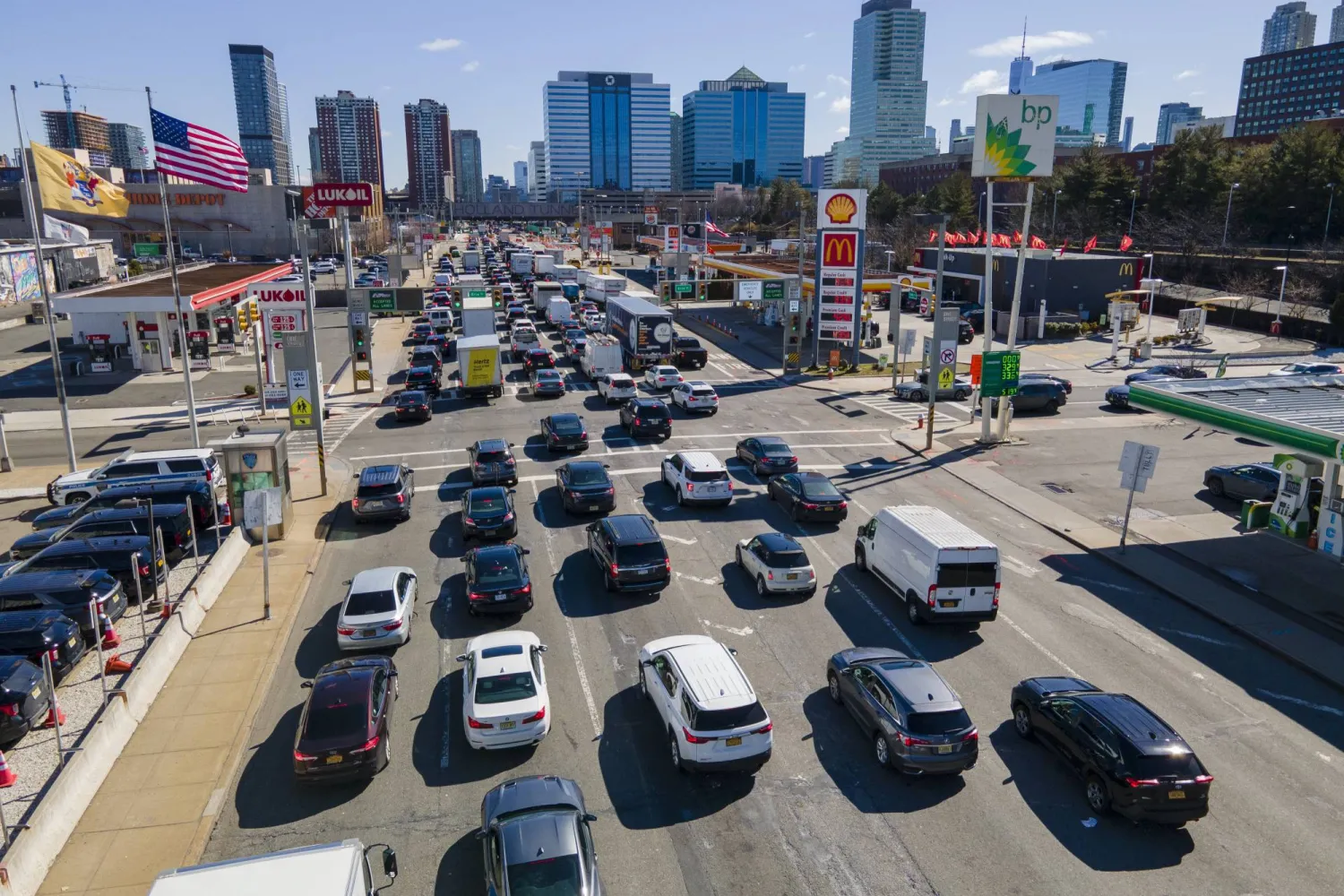New York is on track to become the first US city with congestion tolls on drivers entering its central business district after transit officials approved a $15 fee for most motorists headed to the busiest part of Manhattan.
Members of the Metropolitan Transportation Authority board on Wednesday voted to greenlight the congestion pricing plan, expected to go into effect in June. The board approved only minor changes to a plan presented to the public months ago, and brushed off requests for exceptions by dozens of groups of commuters.
The vote authorizes a $15 toll on most commuter passenger vehicles that drive into Manhattan south of 60th Street, a zone that's south of Central Park, during daytime hours. Tolls are higher for larger vehicles, and lower for late-night entries into the city, as well as for motorcycles, The Associated Press reported.
Supporters of the new tolls say it will push more people to use public transport, reduce congestion to speed up public buses and emergency vehicles, reduce pollution, and raise money needed to improve the subway system. Opponents say the fees are a burden on workers and will increase the prices of staple goods that are driven to the city by truck.
To enter Manhattan, commuters from other states and boroughs already pay around $15 in bridge and tunnel tolls — and the congestion fee will come on top of that. Daily parking costs already run $25 to $50 in the congestion zone, which includes a dozen neighborhoods in Manhattan that are south of 60th street.
New York’s plan has drawn lawsuits from small business owners and the state of New Jersey which demand more thorough environmental assessments before the plan moves forward. In court documents, state officials argue the plan will cost its commuters millions but won't fund improvements in New Jersey transit agencies, even as it funds public transit in New York and Connecticut.
The state Legislature approved the tolls in 2019, mandating that the program should raise $1 billion per year to fund public subway and bus systems for the city’s 4 million daily riders. It also established the boundaries of the zone, which covers the busiest part of the city, and scaled back early proposals to include the area up to 86th Street. The pandemic and lack of federal regulation stalled the project.
Tolls will vary based on the time of day and the size of the vehicle, ranging from $1.75 for motorcycles crossing overnight to $36 for sightseeing buses and trucks with trailers during the day. The overnight period runs from 9 p.m. to 5 a.m. on weekdays, and from 9 p.m. to 9 a.m. on weekends.
Visitors without E-ZPasses — a device that collects toll information remotely — will pay more. And as on bridges, license plate readers are expected to identify other drivers, so that they can be billed by mail.
Taxis will charge passengers $1.25 per trip that touches the zone, while app-based rides will charge $2.50.
A $15 Toll to Drive Into Part of Manhattan Approved. That's a 1st for US Cities

FILE - Commuters wait to drive through the Holland Tunnel into New York City during morning rush hour traffic in Jersey City, N.J., on Wednesday, March 8, 2023. (AP Photo/Ted Shaffrey, File)

A $15 Toll to Drive Into Part of Manhattan Approved. That's a 1st for US Cities

FILE - Commuters wait to drive through the Holland Tunnel into New York City during morning rush hour traffic in Jersey City, N.J., on Wednesday, March 8, 2023. (AP Photo/Ted Shaffrey, File)
لم تشترك بعد
انشئ حساباً خاصاً بك لتحصل على أخبار مخصصة لك ولتتمتع بخاصية حفظ المقالات وتتلقى نشراتنا البريدية المتنوعة







